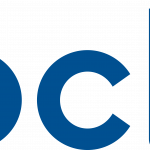Description
Research Project
The ability of chemists to invent new transformations is at heart of our modern society, as novel chemical methods to forge bonds with increased precision and selectivity enable more efficient preparation of materials, medicines, agrochemicals and fine chemicals. Catalysis is a powerful tool to devise new reactions and render the existing ones more selective, thus contributing to a more sustainable use of natural resources. In this context, our young research group aims to develop a research program that merges in original ways elements taken from both organo- and transition-metal catalysis, to open new paths for stereoselective reactions of unsaturated feedstock substrates and for sustainable synthesis oriented to medicinally relevant scaffolds.
To this end, you will design and prepare novel organocatalysts capable of engaging with common metal halide (pre)catalysts via non-covalent interactions. These binary catalytic systems will then be employed in a large variety of reactions (such as cycloadditions, carbene insertions, metathesis, C–H functionalisations, cross couplings…) to achieve increased rate, unusual regio- and stereoselectivity and/or unprecedented levels of enantiocontrol.
Using this general strategy, you will develop catalytic reactions for the stereoselective construction of value-added 4- and 5-membered rings starting from minimally functionalised, electronically unbiased substrates such as alkenes, alkynes and allenes.
The mode of action of the binary catalytic systems will be investigated spectroscopically and kinetically. Improved second-generation catalysts will be designed with the help of structure-activity relationship (SAR) studies and computational predictions.
You will receive hands-on training in synthetic organic chemistry (synthesis, purification and characterisation of organic compounds using a variety of techniques), enantio- and diastereoselective catalysis (transition-metal based as well as organocatalysis), supramolecular chemistry (study of non-covalent interactions in the solution phase) and mechanistic elucidation (kinetics of homogeneous catalytic reactions and basis of DFT calculations).
You will participate in weekly group meetings and problem sessions. You will also have the chance to attend the departmental seminar programme, national symposia and international conferences, in this way presenting your project results, refining your communication skills and engaging with other scientists from academia and industry. Tailored mentoring and support will be provided.
Details
· Fully funded PhD scholarship for 39 months, including tuition fees.
· Open to UK, EU and international candidates, all nationalities welcome.
· Starting date October 2022, a certain degree of flexibility to start later can be possible.
How to apply
You should have a Master degree or equivalent in Chemistry or a related subject, or obtain it before the end of October 2022.
To apply, please send a CV and a cover letter to Dr Allegra Franchino (allegra.franchino@org.chem.ethz.ch) by Friday 8th July 23:59 CET. Online interviews will be held on 12–13th July. Selected candidates will then be asked to apply online through Durham’s application portal: https://studyatdurham.microsoftcrmportals.com/en-US/
Durham University and the Department of Chemistry
Durham university, in the North of England, is a world top 100 university (QS World University rankings 2022) with a global reputation for teaching and research. It is ranked 5th or 6th in the UK by The Times, The Sunday Times Good University Guide 2022, the Complete University Guide 2022 and 5th in the UK for Chemistry in the Guardian University Guide 2022.
Durham university is one of the UK’s most historic universities, sitting in a beautiful, hilly city whose Romanesque Cathedral is recognised as a UNESCO World Heritage Site. Durham’s unique college system creates a strong sense of belonging, offers several social activities and provides students with additional pastoral care. As a PhD student in Durham, you will become part of a dynamic and friendly community, and benefit from cutting-edge facilities.
The Department of Chemistry is well-equipped, with modern research laboratories, state-of-the-art instrumentation and world-class facilities located at the Science Campus, within short walking distance to Durham city centre. 96% of our research outputs were rated world-leading or internationally excellent in the latest UK-wide review (REF 2021). The Department also has close research links with many industrial partners and other universities in the UK and abroad, with leading scientists from around the world visiting and collaborating with us.
The University provides a working and teaching environment that is inclusive and welcoming, where everyone is treated fairly with dignity and respect. We actively encourage applicants with diverse career paths and backgrounds, regardless of age, disability, ethnicity, gender, sexual orientation and religious beliefs.
About Franchino group
Newly established research group in Organic Synthesis and Catalysis at the Department of Chemistry of Durham University, UK.
https://www.linkedin.com/in/allegrafranchino/?locale=en_US



